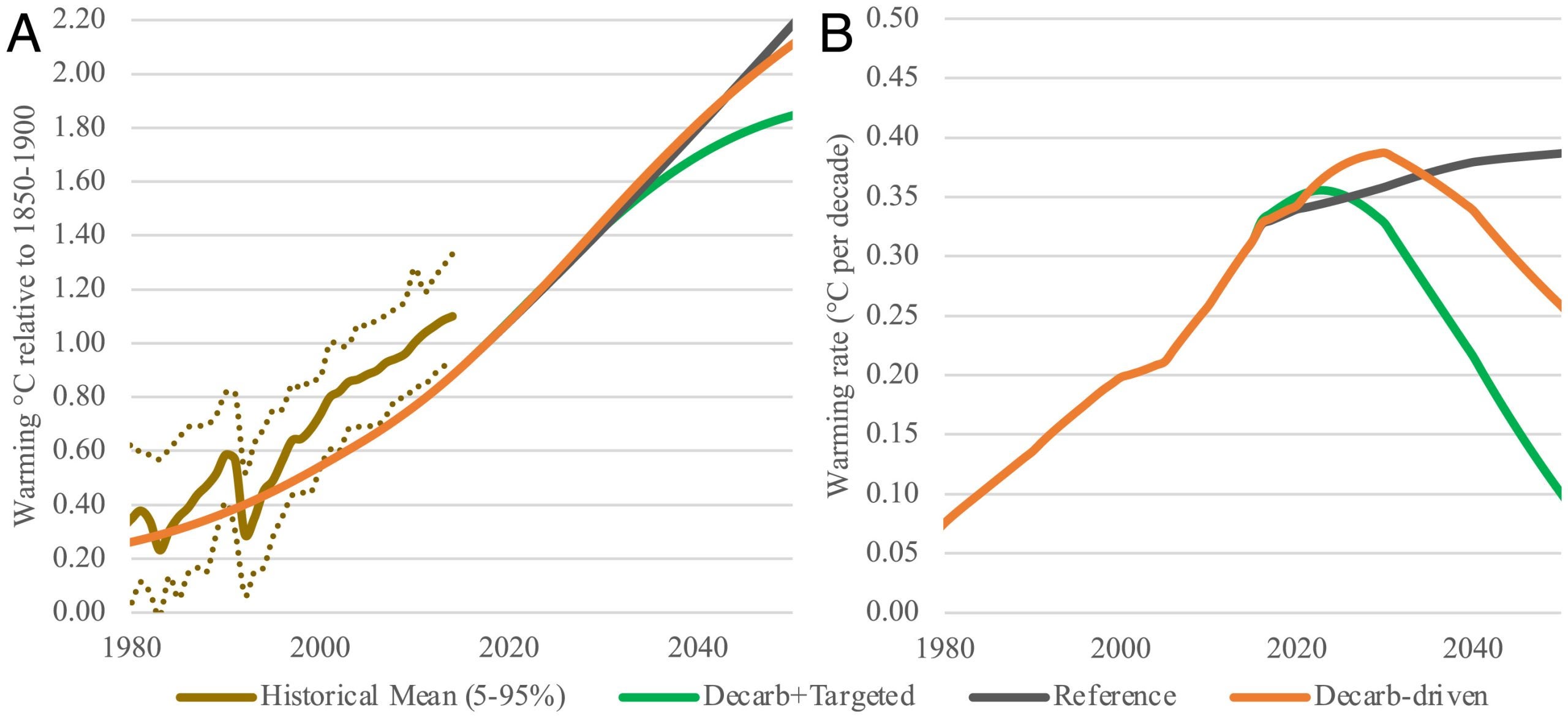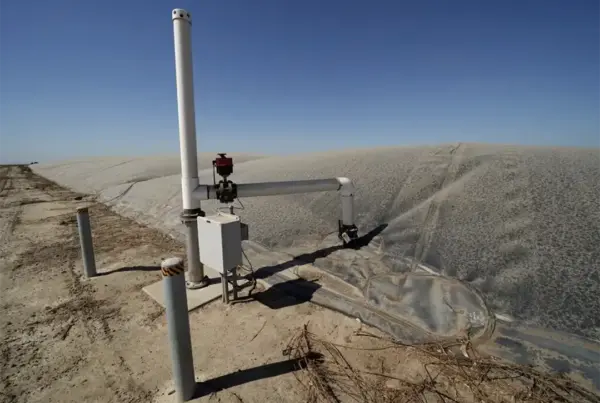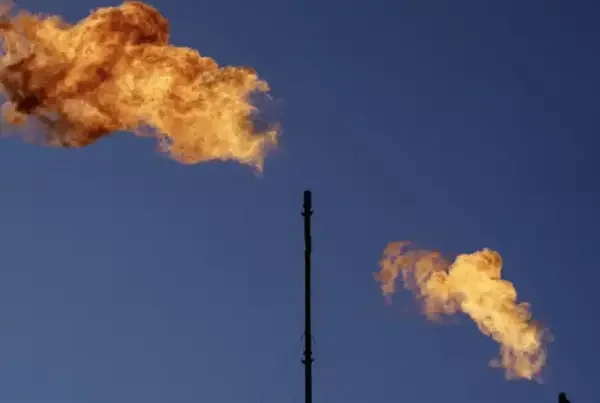SHARM EL SHEIKH–Cutting carbon dioxide emissions is critical to slow global warming, but decarbonization alone is not enough, experts said, speaking on what’s been declared Decarbonization Day at COP27.
“We have to run two races at once,” said Richard Duke, Deputy Special Envoy for Climate at the U.S. State Department. One is a sprint aimed at quickly mitigating the effects of climate change while another is a marathon aimed at managing climate change over the long term.
Experts are recommending a multi-pronged approach to managing global warming, one that considers the short- and long-term impacts of climate mitigation efforts.
“The way to slow warming faster … is by also intentionally targeting methane and other short-lived climate pollutants,” said Gabrielle Dreyfus, chief scientist at the Institute for Governance & Sustainable Development.
The remarks came on the day President Joe Biden announced the U.S. would allocate $20 billion for tackling methane emissions in an effort to make significant reductions in methane emissions by 2030 during a visit to COP27. Additionally, the U.S. pledged to toughen regulations on so-called super-emitters. The approach would require responses to third-party reports of high-volume methane leaks, like those identified by a growing network of satellites.
The U.S. also has released a 50-step methane emissions reduction plan that targets the oil and gas sector, promotes clean manufacturing and rewards farmers for trimming methane emissions and sequestering carbon. The U.S. also plans to require major government suppliers to meet emissions reduction goals in line with the Paris Agreement.
Reducing carbon dioxide emissions is essential to stabilizing the climate, but focusing solely on cutting CO2 emissions only can have a slight warming effect in the short-term. That’s because burning fossil fuels releases black carbon – soot – into the atmosphere, which reflects some sunlight and masks about 0.5°C of temperature increases that would otherwise occur. “If you only do decarbonization you actually increase the rate of warming,” Dreyfus said.
Therefore, the world’s focus must include efforts to reduce short-lived climate pollutants like methane that can have a much more immediate cooling effect than cutting CO2 alone. “If we start cutting methane today we can start to see the impacts in this decade,” Dreyfus said. “This is not an either-or this is a both-and solution.”
Dreyfus called for urgent action to cut methane emissions, saying there are irreversible tipping points in the climate system that could be triggered as warming climbs toward 1.5°C. “We need to slow warming today,” she said.
Phasing out fossil fuels is only part of the solution. “We have to cut emissions from agriculture, waste, and fossil fuels, the major sectors that contribute to methane emissions,” Dreyfus said.
Fossil fuels are the highest priority because they offer the largest opportunity to cut methane emissions. Because so much methane is wasted in fossil fuel production, changes can be made without decimating corporate bottom lines. “We have solutions that essentially pay for themselves or come very close,” Dreyfus said.
Marcelo Mena, CEO of the Global Methane Hub and Chile’s former environment minister, said another cost-effective approach to managing methane emissions is to encourage people to follow recommendations for a healthy diet. “One of the most cost-effective ways to reduce methane in food systems is a healthy diet,” he said. “If people just eat what the doctor orders, that will also reduce emissions.”
Using cleaner fuels and more efficient stoves for cooking also can make a difference. “This is a solution that has so much social benefit besides global methane,” said Anne Reynolds, president of the California Public Utilities Commission.
With a focus solely on decarbonization, “we don’t get a lot of that net cooling benefit until after 2050,” Duke said. “There’s no faster way to pump the brakes on climate change than to cut methane.”



